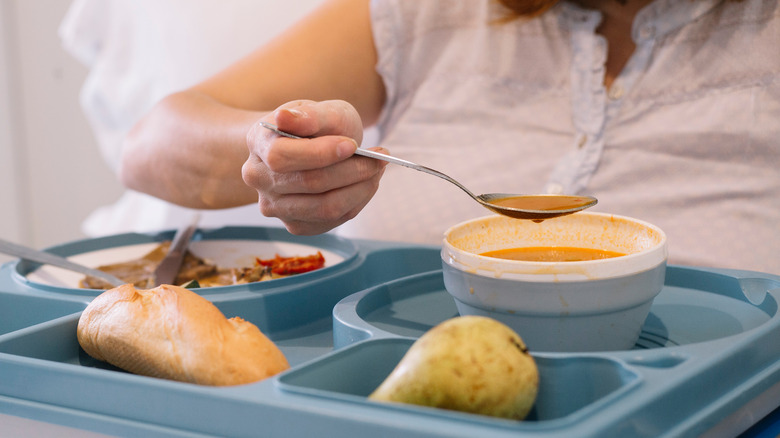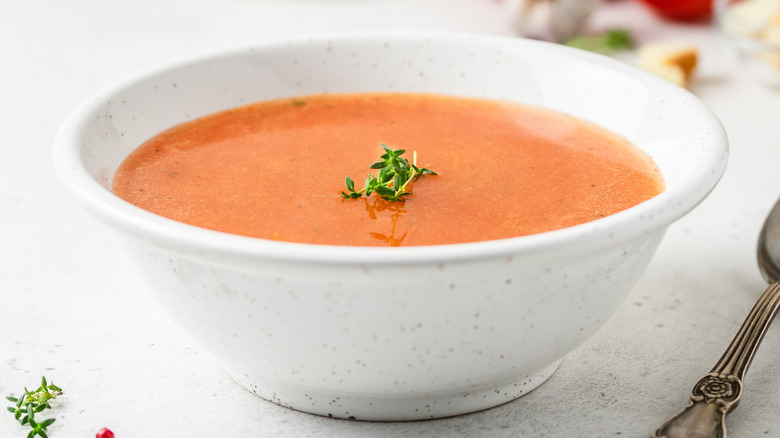Can Eating Soup Help With Surgery?
Rest and recuperation are key when it comes to recovery from surgery. With nearly 50 million surgeries performed yearly, the vast majority are conducted on those 45 years of age and older (via Home Care Assistance). Whether elective, circumstantial, or due to an underlying health issue, surgery can be performed on nearly all parts of the body, with hip replacements, back operations, and biopsies being some of the most frequently needed procedures. Surgery is physically demanding on the body and leaves it susceptible to infection, weight loss, and even pneumonia after the fact. To prevent further complications, it's important to help your body in its natural recovery process by getting enough nutrients to sustain energy and function — this is where the proper selection of food items comes in.
Hydration is essential after a surgical procedure to stave off infection, especially since many pre-op procedures may require fasting beforehand (via Desert West Surgery). Afterward, many doctors will advise soft foods or liquid food items that are easy on the stomach (via University Health Network). Depending on the type of surgery performed, different foods may or may not be recommended, but according to Home Care Assistance, broth-based soups are generally considered a safe option due to their high water content — especially if you find yourself craving something a little more flavorful than regular water.
Which soups are best for certain surgeries?
Soup can be especially helpful with post-surgery recovery when it comes to certain types of procedures, such as gastrointestinal surgery (via University Health Network). Immediately after surgery, doctors may start patients off on a clear fluid diet before progressing to a full fluid diet. The good news is that soup falls into both of these categories. Dietitians recommend clear soups, such as a flavorful broth known as consommé, as a clear fluid diet choice. Strained creamy soups may be utilized on a full fluid diet.
When it comes to dental surgery recovery, soups are highly recommended, so long as they're prepared at a moderate temperature (via Gentle Care Dentistry). Thankfully, when it comes to dental surgery, you don't have to stick strictly to broth. In fact, heartier soups are recommended by dental experts due to the dense nutrients they contain, which can help accelerate muscle, tissue, and skin healing.
Certain types of soup serve different purposes during recovery. For example, a tomato basil soup with parmesan can help mend an open wound, while a curry pumpkin soup can boost immunity. Alternatively, a creamy roasted garlic cauliflower soup floods the body with antioxidants, while broccoli cheddar soup provides a healthy dose of vitamin C and K, along with much-needed iron and potassium. Of course, be sure to follow your doctor's specific instructions when it comes to surgery, as different procedures will have different dietary restrictions during the recovery process.


